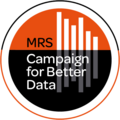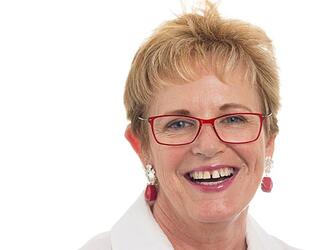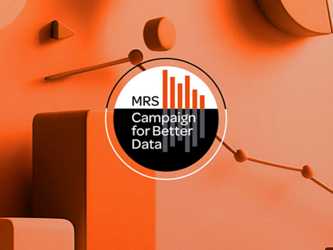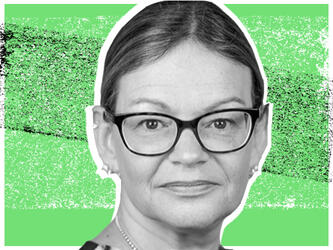‘We are arbiters of truth’: Why the industry is coming together to set better data foundations

Robust data is as essential to insight as fuel is to a car, and insight in turn is essential to meaningful organisational decision-making. Whether it’s a new product, a strategic turnaround or an efficiency drive, the impact of high-quality research is evident in the outcomes all around us.
However, the data underpinning that insight is under threat. Issues with quality are well documented. From bad actors orchestrating survey fraud to AI proliferating inaccurate or even fake information, the data that fuels the research industry is at risk of being compromised. A 2024 podcast by Research Live heard that it is an “existential issue” for the sector.
In recent years, the industry has stepped up collaborative efforts to address the problem with the launch of the Global Data Quality (GDQ) initiative in 2023, a joint effort by MRS, Esomar and other industry bodies globally that looks to address risks to data quality across market and social research, consumer insights and analytics. Outputs have included the Data Quality Excellence Pledge for market research industry organisations to uphold rigorous standards.
In 2025, the sands have shifted again. AI has become an established element of the research process, and the industry is experimenting with and deploying synthetic data at a greater scale. While there is optimism across the sector over the benefits of AI, so too is there potential for technology to exacerbate the industry’s underlying quality issues.
With suppliers developing their own individual approaches to ensuring quality, there is a need for more collaboration – more experience sharing, training and skills development in this area. As such, earlier in May MRS launched the Campaign for Better Data with founding partners Ipsos and Kantar to ‘future-proof’ the quality of the sector’s evidence.
Why now?
Rigorous research is the foundation of quality insights, and there is an understanding that not all data is created equally. So why is it important for the research sector to take up this mantle – and why now?
Kelly Beaver, chief executive of Ipsos in the UK and Ireland, says the industry must evolve, but has licence to take this charge.
“There’s a huge amount of data available across the world, understanding consumers and understanding citizens, and ultimately, that information is often the bedrock of how people make decisions,” says Beaver. “And if you think about the importance and whether those are high stakes or low stakes decisions, if the data is not of a high enough quality, you are making choices that shape the future of your organisation, of policy and of citizen’s lives. With data that is not accurate enough, trustworthy enough and perhaps those decisions will be ill-informed. So, it is an absolute imperative that high quality data helps to inform decisions well and accurately, so that we have the right outcomes from the decisions that we are taking across a whole range of different spectrums.”
While the industry always strives to provide “the highest quality data possible”, says Beaver, several factors are converging that are making it “particularly crucial” now. She cites developments in both AI and synthetic data. “Those are both great possibilities, but they do come with challenges.” AI’s limitations, well-documented, include amplifying data biases or inaccuracies. To add to the mix, Beaver says: "If you think about the proliferation of misinformation online, it just makes it more challenging than ever to determine what is fact and what is fiction.”
Beaver continues: “So, the volume of data available, how fragmented some of the consumer touch points are and the rise of things like synthetic data; it means the industry itself has to evolve – and the way in which we assess and determine data quality standards need to continue to be robust and forward-facing in that changing environment.”
Beaver feels the industry is “uniquely placed” to address these issues. “We’ve a real licence, and the ability to harness this as an area of expertise for the industry is a challenge. We are people who help deliver truths for clients – sometimes uncomfortable truths about whether a product is going to fly off the shelves or whether it is not appetising to consumers. So, we are the arbiters of truth, with bringing the public voice and the citizen voice and the consumer voice into those boardroom tables.”
If the industry champions better data practices, it will improve decision-making at boardroom tables in the UK and around the world, adds Beaver, saying: “I think we’ve a unique position here and we need to capitalise on it.”
Kantar’s Caroline Frankum says that while the fundamentals remain the same, the era of AI has brought new urgency. Frankum, global chief executive of Kantar’s profiles division, says: “Trusted objectivity has always been the cornerstone of the success of the market research sector, so that hasn’t changed.
“We have to ensure that we truly represent the diverse and increasingly complex world we serve, which is no mean feat. We have to keep pace with the speed of transformation evolution, and we are definitely in an era of AI and large language models.”
Frankum says it is about “striking the right balance” between machine and human collaboration – “ensuring our AI solutions, as an industry, are fit for purpose to ensure that clients do get insights at the speed and scale of life, but also, ensuring that they’re grounded in trusted data”.
According to Frankum, that means more training and more specialist skillsets to ensure that market research professionals are adept at dealing with AI. Additionally, she says the industry must ensure that “we are talking to real people who are actually who they say they are, and that we give them an engaging experience, so that they actually want to be truly representative in their own responses to the questions that we ask them.”
Triangulating all of that, adds Frankum, is a process of “continued evolution” for the sector.
She says: “What I love about this campaign is that you’ve got the two biggest agencies in the industry, Ipsos and Kantar, coming together to say: ‘Everyone’s talking about quality. Lots of people are claiming quality. Let’s set some strong foundations for the sector to show that it’s important to us, we’re focusing on evolving, as the whole industry and the whole world evolves, and ensuring that our talents and our technology are working in collaboration with each other to ensure that the data we do provide is meaningful and representative’.”
This evolution is necessary as the sector risks irrelevance if it does not address these issues. In an article for Research Live to coincide with the Campaign for Better Data, MRS chief executive Jane Frost wrote: “Everyone’s future in research is at risk if declines in participant trust are not halted and the data we produce is not such as we would be proud of.”
Beaver says: “If we fail to address the evolving landscape and the data quality challenges that come with that, we risk undermining the credibility and the value of the whole industry. The world’s awash with misinformation, and trust is something that we, as an industry have with our participants and from our clients. And our data needs to continue to be reliable, so, that our insights are understood, heard, embraced in decision making. And ultimately, the relevance of the industry itself is determined by our trust and our credibility.”
Marie Ridgley, chief executive of Kantar’s insights division, says: “If we collectively don’t collaborate and protect human insight, it’s going to undermine the health of our profession, and also, the health of our brands and our businesses, longer term.”
Client expectations
Winds of change often originate from clients – as the buyers of research, their demands drive trends in the industry. So, how concerned are they about data quality?
Ridgley, says clients she has spoken with since the launch of the Campaign for Better Data have been supportive as they “see it as fundamental to the health of our industry”.
It comes down to clients wanting security in what they base decisions on, says Ridgley. “Fundamentally, clients come to us to help inform their business decisions, and so, they have to be very, very confident in the basis on which they’re making those decisions, because they’ve got commercial value.”
Without high-quality “human data”, organisations have no basis on which to make decisions, she adds. “Then, as AI comes along, clearly, that means that you can amplify certain samples that are maybe hard to reach – again, you need to know that they’re real human beings, not fabricated answers, so that we can build the models off the back of that.”
Clients’ expectations of suppliers have changed, says Beaver. “Clients, especially clients who have worked with both survey and non-survey data for long periods of time, know that poor data quality leads to wasted resources, missed opportunities and ultimately, poor business outcomes, which they are responsible or partly responsible for helping to drive.”
Beaver says clients are becoming “increasingly sophisticated” in their understanding of data and its implications. Therefore, “they expect partners to maintain the highest standards of data quality and integrity,” she adds.
James Sallows, a member of the MRS Senior Client Council who has held senior insight roles at Haleon and IPG and is currently head of marketing effectiveness at Lego, thinks that while clients will always be concerned about the reliability and accuracy of data used in their business, the details may get lost.
“There’s not a single client who will say that this is not a top priority,” Sallows says. “However, if you re-frame the question as, ‘How deeply do you look at the sources, origins and composition of your data?’ you’ll then find a whole different set of answers around: ‘I trust my suppliers. I trust my partners. I don’t have time to do this. My assumption is there are principles in place and it’s all OK.’ I think people are concerned about outputs more than they are about inputs – and of course, the two are linked.”
Expanding on this point, Sallows says the industry requires trust through all elements of research, from data collection to results. He thinks the Campaign for Better Data will allow the sector to renew its focus on either reinforcing that trust or rebuilding it where necessary.
Sallows also points to another issue – the speed of development in the industry has outpaced the knowledge of clients and procurement. He is unsure whether people understand what questions they should be asking to determine whether data is good quality, or not.
Sallows reasons: “Some of that is because there are new areas and new types of data, and some of it is because somewhere along the way, we’ve lost some of those basic questions around methodology. I think especially with changing from face-to-face respondents to telephone respondents, online respondents, panels and panel exchanges, I’m not sure that the real impact of that has been understood.
“I can’t imagine a procurement team who would ask a sufficiently difficult question about the impact of using router sample versus panel sample. I think the technology is too sophisticated for people to get behind.”
There is a need for a broad consensus on what high-quality data looks like, he adds. “If you believe the language used in the sector, everybody is high-quality. Not all data and not all sample is equal. Lots of people don’t understand that and don’t have that appreciation of: ‘If I my source is A or if my source is B then it’s going to have an impact.’ They could be perceived as just being interchangeable, whereas actually they’re vastly different.”
Solid foundations
Insights professionals have always understood that insights are only as good as the data they’re based on. The methodologies underpinning research do not happen by accident, and James Sallows thinks that research principles and data quality go “hand in hand”.
“For me, the principles around research principles and sampling are really important,” says Sallows. “Across my last few roles, I’ve encountered as many challenges with data quality as I have with understanding of methodology, so, I think the two go hand in hand. If we’re talking about better quality data, it’s also about that appreciation of the methods. Research is a science and an art, and it takes both to provide good quality data.”
Sallows thinks more awareness and upskilling is needed to understand that balance. “It’s the same with any sector – people don’t get trained anymore when they come into a sector. So, if there isn’t an appreciation of how the slightest change in sampling practices massively impacts end data, then of course, you make the most convenient, profitable decision in your business.”
Ridgley says there is a need to consider the pathway for “the next generation of research and insight professionals”.
She says: “The education and the re-engagement of our next generation of industry professionals is a really big area. It’s much more [about] connecting in a relevant way to the AI tools that they interact with in their daily lives, but saying: ‘Underneath this, it’s about how humans are responding.’
“That is also quite inspiring, because it paints a picture of us being at the forefront of AI and what it can do, but using all those important fundamental skills in that new world. That, for me, is, re-engaging people on what their career can be.”

We hope you enjoyed this article.
Research Live is published by MRS.
The Market Research Society (MRS) exists to promote and protect the research sector, showcasing how research delivers impact for businesses and government.
Members of MRS enjoy many benefits including tailoured policy guidance, discounts on training and conferences, and access to member-only content.
For example, there's an archive of winning case studies from over a decade of MRS Awards.
Find out more about the benefits of joining MRS here.















0 Comments